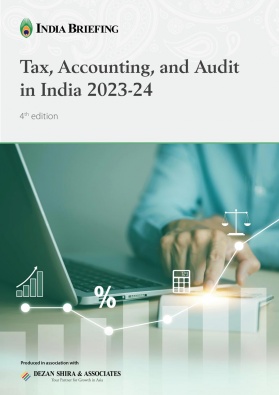JPMorgan Includes India in Emerging Market Debt Index, Paves Way for Billions in Investments
JPMorgan’s decision to include India in its emerging market debt index is set to attract billions in investments, with Indian bonds becoming part of the Government Bond Index-Emerging Markets (GBI-EM), a key benchmark index for global funds. India’s economic growth, robust corporate earnings, and geopolitical influence have made it an appealing destination for international investors. The move is expected to stimulate capital inflows of up to US$25 billion by March 2025, underlining India’s growing prominence in the global investment landscape.
In a significant development for India’s economic landscape, JPMorgan announced its intention to incorporate India into its highly monitored emerging market debt index. This move is poised to pave the way for a substantial influx of capital into the world’s fifth-largest economy.
India’s domestic bonds will be integrated into the Government Bond Index-Emerging Markets (GBI-EM), a key component of the index suite that serves as a benchmark for approximately US$236 billion in global funds, as reported by JPMorgan. According to the statement released, the index provider will commence the inclusion of Indian securities into the JPMorgan GBI-EM in a phased manner, starting June 28, 2024 and will be completed in March 2025.
Notably, India’s weight is expected to reach the maximum weight threshold of 10 percent in the GBI-EM Global Diversified, and approximately 8.7 percent in the GBI-EM Global index.
JPMorgan has identified 23 Indian Government Bonds (IGBs) with a collective notional worth of US$330 billion that meet the eligibility criteria. All these bonds fall under the classification of “fully accessible” for non-resident (NRI) investors.
This move comes on the heels of the Indian government’s progressive measures, introduced in 2020, which allowed foreigners to have complete ownership of certain bonds. Furthermore, the government has taken steps to facilitate foreign portfolio investments (FPI). The statement from JPMorgan’s team, led by Gloria Kim, the firm’s global head of index research, emphasized that nearly three-quarters of benchmark investors surveyed expressed a favorable inclination towards India’s inclusion in the index.
Nagaraj Kulkarni, of Asia rates ex-China at Standard Chartered Plc in Singapore, pointed out, “Foreign investors will gain access to a sizable market influenced by unique factors, while domestic investors will welcome a diverse set of investors with varying risk-return preferences.” In light of these developments, Kulkarni anticipates that this decision could stimulate capital inflows of up to US$25 billion by March 2025, further underlining the potential for substantial economic impact resulting from India’s inclusion in the index.
Key factors fueling India’s appeal among global investors
This development underscores the increasing appeal of India to global investors, driven by a host of compelling factors. Foremost among these factors is India’s remarkable economic growth, which consistently outpaces that of its peer nations. This ongoing robust economic expansion serves as a compelling draw for international investors in search of profitable prospects within emerging markets.
From an equity perspective, India has emerged as a standout investment destination among the prominent emerging markets this year. The nation’s rapidly expanding economy and robust corporate earnings have propelled its equity benchmark to approach historic highs. Investment managers specializing in developing markets have exhibited a strong overweight position on India within their Asian portfolios, as highlighted by analysts from Goldman Sachs Group Inc. in a recent report. This underscores the prevailing confidence in India’s economic prospects and the attractiveness of its equity market as a favored investment avenue in the Asian region.
Furthermore, India’s expanding geopolitical influence is a key driver behind this trend. As the country asserts itself on the global stage, it is increasingly viewed as a strategic investment destination. This economic prominence is particularly appealing to corporations like Apple Inc., which are actively exploring alternatives to diversify their supply chains and reduce their reliance on the Chinese market.
Although foreign participation in the Indian bond market remains relatively modest, recent years have witnessed a noticeable surge in capital inflows. This uptick can be attributed to India’s reputation as a resilient investment hub, particularly when compared to the economic turbulence that has afflicted other developing nations. It is essential to emphasize that India’s financial assets have consistently demonstrated their ability to withstand adverse global economic conditions, a factor that enhances its appeal to risk-conscious investors.
Also read
- Debt Funding in India: Options Available to Foreign Investors, Entrepreneurs
- Legal Framework Underway to Establish India’s GIFT City as a Global Accounting Hub
About Us
India Briefing is produced by Dezan Shira & Associates. The firm assists foreign investors throughout Asia from offices across the world, including in Delhi and Mumbai. Readers may write to india@dezshira.com for more support on doing business in India.
We also maintain offices or have alliance partners assisting foreign investors in Indonesia, Singapore, Vietnam, Philippines, Malaysia, Thailand, Italy, Germany, and the United States, in addition to practices in Bangladesh and Russia.
- Previous Article Bengaluru, India: Foreign Investment Brief
- Next Article India Will Not Impose Curbs on Imports of Laptops, PCs, Servers from Nov. 1









